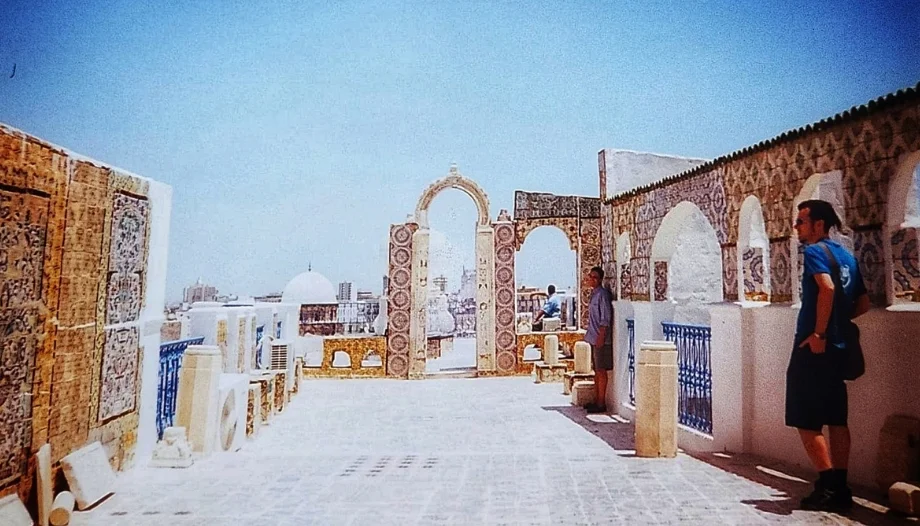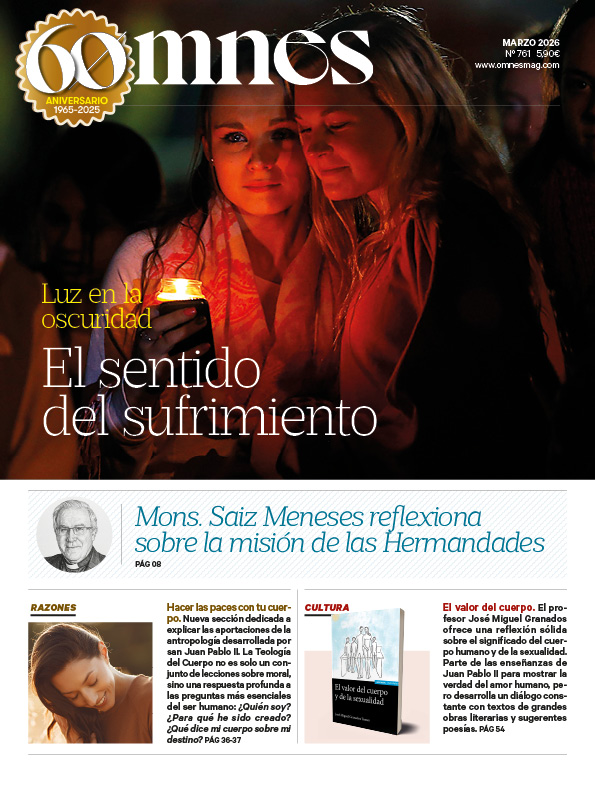From the Ottomans to independence
From the 16th century, Algeria and Tunisia entered the Ottoman orbit, although they maintained a wide autonomy. From this period dates the development of the phenomenon of the Barbary corsairs, who terrorized the Mediterranean from their bases in the ports of Tunis and, above all, Algiers, a stronghold of the corsairs and governed for a certain period by law in Constantinople, but de facto autonomous. Also in Tunisia, since 1574, the dynasty of the Husaynid beys (founded by a convert to Islam) maintained a relative independence.
This long period of relative autonomy of the two countries ended in the 19th century, when France occupied Algeria in 1830, turning it into a settlement colony: European settlers settled en masse, especially on the coast, while the local population was expropriated of its land and deprived of its rights. In Tunisia, in 1881, Paris imposed a protectorate.
Nationalist struggles led to the independence of both countries: Tunisia in 1956, led by Habib Bourguiba, and Algeria in 1962, after the bloody war waged by the National Liberation Front (FLN).
From independence to the present day
After independence, the two countries took different paths.
Tunisia, or rather Bourguiba, opted for a secular and modernizing model: the 1956 Personal Status Code abolished polygamy, introduced regulated divorce and enshrined unprecedented rights for women in the Arab-Islamic world. Although Islam was the official state religion, legislation (and customs) were based on secularism. Still in 2000, when I spent a month in Tunisia, I remember breathing an atmosphere decidedly different from that of other Muslim countries.
After Bourguiba, Tunisia experienced the long dictatorship of Ben Ali (1987-2011), which formally maintained secularism and stability, but repressed the opposition, especially the Islamist one. Precisely here, in December 2010, with the self-immolation of the young Mohamed Bouazizi, the Jasmine Revolution broke out, overthrowing the regime and triggering the phenomenon of the Arab Springs, which then spread throughout the Middle East. The country then began a democratic transition: the 2014 Constitution remains one of the most advanced in the Arab world, but tensions between secularists and Islamists of the Ennahda party, the economic crisis and jihadist attacks have undermined stability. In 2021, President Kaïs Saïed suspended Parliament and concentrated powers in his hands, effectively initiating a return to authoritarianism.
Algeria, for its part, continued to be dominated by the FLN, which established a single-party regime with strong links between the army and political power. The 1963 Constitution also proclaimed Islam as the state religion, and in the 1970s the government implemented a policy of nationalization of energy resources. However, corruption, authoritarianism and demographic growth fueled large protests which, in 1989, led to the adoption of a new multi-party constitution: the Islamic Salvation Front (FIS) was thus free to run in municipal elections and was so overwhelmingly successful that it was expected to win in politics as well.
Consequently, fearing an Islamist drift, the army annulled the 1991 elections, triggering a civil war that, in almost 10 years, caused more than 100,000 victims.
Arabs and Berbers, but almost all of them Muslims.
While ethnically Algeria and Tunisia have two main components of the population, the Arabic-speaking and the Arabic-speaking. Berber-speaking (in Algeria, where the Tamazight Berber language is official along with Arabic, Berber speakers represent about 25 %, especially in Kabylia, the homeland of French footballer Zineddine Zidane; in Tunisia, on the other hand, less than 2 %, concentrated mainly in small communities such as the island of Djerba), from the religious point of view there is an impressive uniformity: no less than 99 % of the population of both countries professes the Islamic religion, in its Maliki branch (legal school).
In 2025, Tunisia continues to live in a state of emergency, renewed due to the persistent jihadist threat following the 2015 attacks and the dangers of ISIS infiltration. However, the influence of Islam remains less pressing than in Algeria, where it remains the fundamental axis of public life and severe restrictions on freedom of worship persist for Christians and non-Sunni communities. Motives of tension and concern for the few local Christian communities are also the requests for conversion by Muslims, which, however, are "rejected" or severely examined by the clergy and the Christian religious authorities for fear of infiltration by the Algerian secret services in what can be considered a subversive activity on the part of the Church (proselytizing). At the same time, Algeria preserves a rich Sufi mystical heritage, with widespread confraternities which, as in LibyaThe Islam of the Muslims, for centuries, has embodied a popular Islam that is less rigid than the official one.
The Jews
In Algeria, after the French conquest in 1830, the Jews obtained privileged conditions with the Crémieux decree of 1870, which made them French citizens, but caused them to lose the old community structures. Despite French cultural integration, relations with local Muslims remained good until the Vichy regime (1940-42), when the decree was suspended and citizenship revoked. Once rights were restored in 1943, the community lived in peace until independence in 1962, when some 115,000 Jews emigrated to France. Today only a few hundred remain.
In Tunisia, the "Fundamental Pact" of 1857 guaranteed equality to the Israelites, reinforced under the French protectorate (1881). In the 1950s, the community numbered 105 000 people, with centers in Tunis and Djerba, home of the Ġrībah synagogue, which I had the opportunity to visit and which, unfortunately, suffered two serious Islamist attacks in 2002 and 2003. Here, too, Vichy introduced discriminatory laws. After independence (1956), Jews gained full rights and even political representation, but emigration reduced the community to fewer than 1500 members.
Christians
Unlike the Mashreq, where Christian communities of millenary tradition survive, albeit with dramatic difficulties, in the Maghreb Christianity has almost completely disappeared. In Roman and late Roman times, North Africa was the cradle of the Church, but the Arab conquest of the 7th century led to a rapid Islamization, also due to the tribal context and the greater rigidity of Sunni Maliki Islam. In the 19th century, French colonialism built churches and "imported" faithful from Europe, but with independence almost all Europeans left the region.
As in an article on JapanIn this land too, both in antiquity and in contemporary times, especially in Algeria, Christians have nevertheless represented the "soul of the world".
We cannot fail to mention the incredible testimony of faith of Charles de Foucauld, a French officer converted to Christianity who chose a hermit life among the Tuaregs of the Algerian Sahara. He did not try to proselytize, preferring to bear witness to his faith by a simple and fraternal life, defining himself as a "universal brother". He studied the local language and culture and left a valuable Tuareg dictionary. Assassinated in 1916, he was canonized by Pope Francis in 2022 and is a symbol of dialogue and silent fraternity at the heart of Islam.
Following in Foucauld's footsteps, in the midst of the Algerian civil war, the seven Trappists of Tibhirine also remained close to the Muslim population of their village, sharing their lives and sufferings. Kidnapped and killed in 1996 by an Islamist group, they were witnesses of radical fidelity to the Gospel and a sign of the fraternity possible between Christians and Muslims. Beatified in 2018, their story is also told in the film Men of God.
In conclusion, Algeria and Tunisia, "peripheral" regions for Christianity (only numerically), are no less important than others, for what they have contributed (a bit like Bethlehem for the birth of the Messiah), from St. Augustine to the present day, with an Augustinian pope, Leo XIV, who follows the spirituality of the founder, based on interiority, the search for truth, community life and love for the Church, all with intense pastoral activity, dialogue and listening.
It is rumored in Rome that the first trip of Pope Leo XIV could be precisely to Tagaste (Souk Ahras) and Hippo (Annaba), in Algeria. Even if this were not the case, Carthage, Tagaste, Hippo and ancient Proconsular Africa, that is, Algeria and Tunisia, continue to be protagonists in the spiritual life of the Church.








